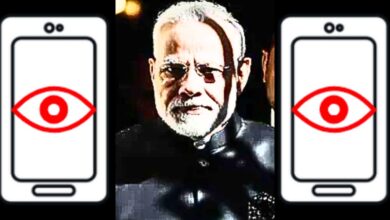New Year, Same Old Story: How Indians Became PhD Experts In Health Without Ever Leaving Their Couch

Happy New Year Indians.
Ah, January – that magical time of year when everyone suddenly becomes a certified health expert armed with Instagram reels and WhatsApp forwards. Welcome to India, where we’ve mastered the art of knowing everything about health while simultaneously earning our title as the world’s diabetes capital. Impressive multitasking, isn’t it?
Let’s talk about our favorite national sport: giving health advice on social media. Move over cricket, we’ve got millions of keyboard warriors who can write dissertations on the benefits of intermittent fasting while munching on their third samosa of the day. These are the same people who’ll lecture you about the importance of 10,000 steps while their most significant daily exercise is scrolling through LinkedIn.

Speaking of LinkedIn, have you noticed how everyone there seems to have a PhD in nutrition? It’s fascinating how someone can write a 2000-word comment about the evils of processed sugar while sipping their fifth cup of chai with two spoons of the white devil itself. The cognitive dissonance is almost as impressive as our ability to ignore it.
But wait, it gets better. We’re living in an era where everyone’s a health guru, yet somehow we’re getting unhealthier by the minute. It’s like we’ve created this perfect paradox: the more health information we consume, the less healthy we become. Maybe we should add “Professional Procrastinator in Health Matters” to our LinkedIn skills section?
Let’s break down this masterclass in self-deception:
First, we have the “Satvic Warriors” – those enlightened souls who preach about the benefits of ancient Indian diets while ordering their third Swiggy delivery of the day. They’ll write passionate essays about how our ancestors lived healthier lives, conveniently forgetting that our ancestors also didn’t spend 12 hours a day sitting in an air-conditioned office.
Then there’s the “Future Gym Enthusiast” tribe. These folks have spent so much time researching the perfect workout routine that they’ve forgotten the gym actually requires you to show up. They can tell you exactly why your squat form is wrong, despite never having done one themselves. Their gym membership card is as pristine as their unused yoga mat.

And let’s not forget our beloved “Diet Researchers” – those dedicated individuals who’ve read every diet book ever written but can’t seem to find the right one to start with. They’re still waiting for that perfect diet that will allow them to eat butter chicken six times a week while maintaining six-pack abs. Keep dreaming, champions!
The real irony? We’re probably the only nation that can simultaneously hold a deep respect for traditional wellness practices and a burning desire for quick-fix solutions. We’ll debate the merits of ashwagandha versus protein shakes, all while avoiding the simple truth that maybe, just maybe, we should start with walking for 30 minutes a day.
But here’s the kicker – we’re exceptional at finding excuses. “I’ll start when the weather gets better,” says someone in Mumbai, where the weather is basically the same all year round. “I need to find the right trainer,” declares another, who’s been ‘searching’ for the past three years. My personal favorite: “I’ll begin my health journey once I finish watching all these YouTube videos about health.”
The truth is, we’ve become masters of health literacy while remaining beginners at health practice. We can quote scientific studies about the benefits of exercise, yet our most strenuous daily activity is deciding what to order for dinner. We’ve somehow convinced ourselves that knowing equals doing, that reading about health somehow makes us healthy.
Here’s a revolutionary thought: what if we spent less time being health philosophers and more time being health practitioners? What if instead of writing that lengthy comment about the perfect diet, we just ate one more vegetable today? What if rather than debating the optimal exercise routine, we just did 10 pushups right now?
But no, that would be too simple, wouldn’t it? We prefer our health journey to be complicated, theoretical, and perpetually in the planning phase. After all, why take action today when you can plan to take action tomorrow?
As we enter this new year, perhaps it’s time to close LinkedIn, put down the phone, and actually do something. Anything. Even if it’s imperfect, even if it’s not optimized, even if it’s not backed by the latest research paper you haven’t actually read but shared anyway.
Remember, your body doesn’t care about your knowledge of protein synthesis or your expert opinion on keto versus paleo. It just wants you to move a little more and maybe eat something that wasn’t delivered through an app.

But hey, what do I know? I’m just another voice on the internet. Feel free to share this article, write a detailed comment about how right (or wrong) it is, and then go back to planning your perfect health routine that’ll start… someday.




